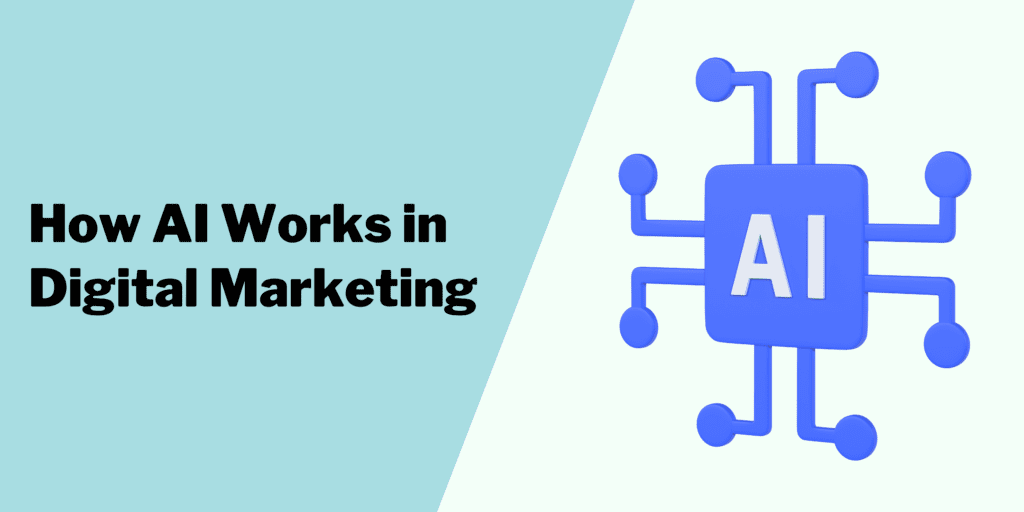In Today’s Digital landscape, businesses are constantly looking for innovative ways to stay ahead of the competition. With the rapid advancements in technology, one of the most prominent trends shaping the Digital Marketing Agency is the use of (artificial intelligence) AI.
AI has revolutionised various aspects of digital marketing, enabling businesses to gain valuable insights, streamline processes, and enhance customer experiences. In this comprehensive guide, we will explore How AI Works In Digital Marketing And Its Impact On Businesses. So, let’s dive in!
Understanding Artificial Intelligence (AI)
AI in Digital Marketing: Revolutionising the Landscape



Important Key Factors in AI Marketing
1. Personalised Marketing Campaigns
2. Chatbots and Virtual Assistants
3. Predictive Analytics
4. Content Creation and Curation
5. Sentiment Analysis
Implementing AI in Digital Marketing Strategies
Here Are Some Key Considerations:
1. Define Objectives and KPIs
2. Collect and Organise Data
3. Choose the Right AI Tools and Technologies
4. Test and Iterate
5. Ensure the Ethical Use of AI
Conclusion
AI has revolutionised the digital marketing landscape, empowering businesses to gain valuable insights, optimise marketing strategies, and enhance customer experiences. By leveraging the power of AI, businesses can create personalised campaigns, automate customer interactions, predict customer behaviour, and streamline content creation processes. However, successful implementation requires clear objectives, robust data management, careful tool selection, continuous testing, and ethical considerations. Embracing AI in Digital Marketing can give businesses a competitive edge in today’s fast-paced, data-driven world.
So, if you’re looking to stay ahead in the digital marketing realm, embrace the power of AI and unlock new possibilities for your business. Visit Virtual Height to learn more about how AI can revolutionise your digital marketing strategies.



